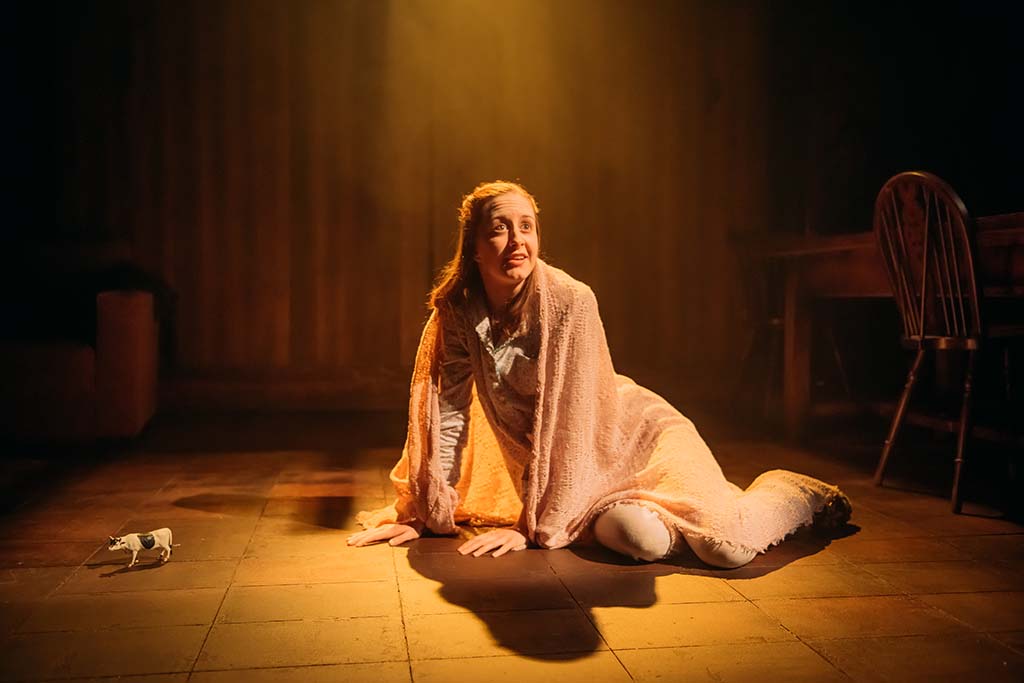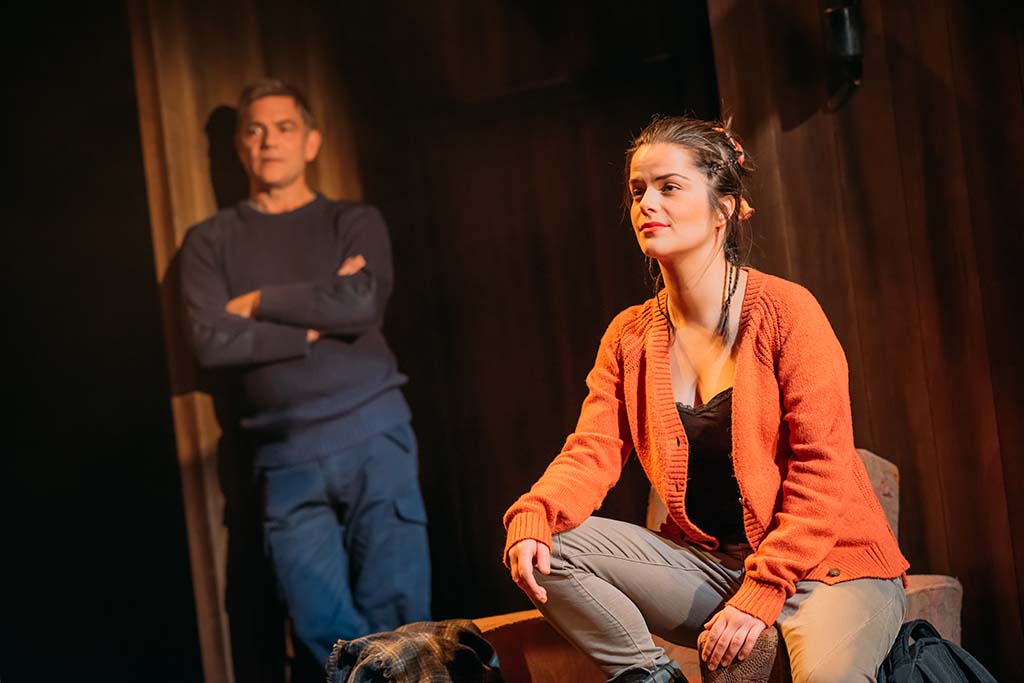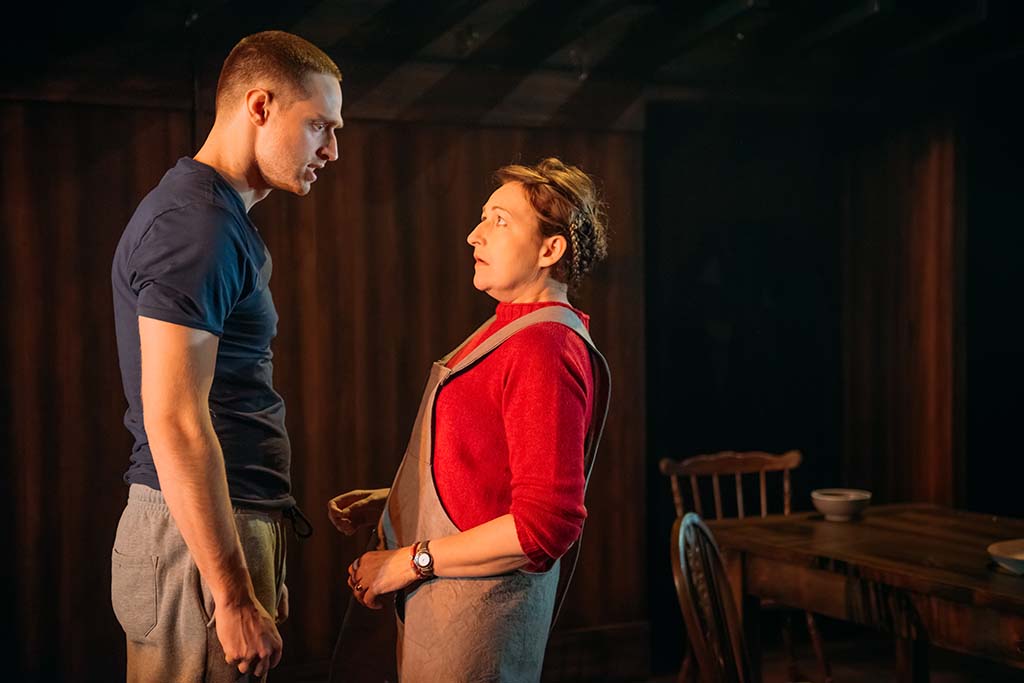What would you do to save the life of someone you loved? Would you die for them? Would you kill? This question is at the heart of Grain in the Blood, Rob Drummond’s tense drama set in the depths of rural Scotland. Twelve-year-old Autumn (Sarah Miele) is dying and only Isaac (Andrew Rothney) can save her. It is hard to say more about the plot without risking reducing its power.
The audience are right up against the action in a claustrophobic atmosphere. Swirling smoke constantly hides the edges of the stage and hems the actors in. Oppressive music swells and fades, ever-present and tense. The remote, rural setting increases the isolation while the largely one-room nature of the production adds to a sense of entrapment.
Permeating the whole production are eerie harvest verses, repeated again and again. They are impossible to escape for audience and characters alike. Their repetition never lets up, right to the very end, immersing us in the ancient harvest myths and traditions which do so much to shape the present lives of the characters. They are brought to life in the form of eerie grain dollies – little corn dolls – traditionally filled with the blood of young girls.
This play is metaphorically soaked in blood – blood ties, blood debts, blood sacrifice. Its physical absence from the stage enhances its mystical status as a bringer of both life and death. It underscores everything the characters do and seemingly everything they have done. While the metaphor is perhaps a little heavy-handed early on, it is justified by unfolding events.
Our way into this blood-soaked world is provided by Burt (John Michie). In portraying an outsider who becomes trapped in this modern incarnation of ancient harvest rites, Michie is restrained and sympathetic. Blythe Duff is excellent as the calm, practical, caring Sophia – architect of the play’s events.
Miele provides much of the humour as Autumn – washed-out and frail though she is – and a story-telling focal point in the manner of Katurian in Martin McDonagh’s The Pillowman. Rothney’s Isaac hangs limp and unresponsive one minute, exploding with barely suppressed rage the next.
But the show in many ways belongs to Frances Thorburn as Vi. She is foul-mouthed and arch, wryly seductive, unhappy and passionate. The very different sorts of tension that crackle between her and the two male characters are electric and thrilling. Whether she is suggestively straddling the arm of a chair or quietly sitting down to dinner, it is hard to take your eyes off of Thorburn.
Director Orla O’Loughlin maintains the dramatic tension right to the very end of this play. Although often darkly funny, the humour never detracts from the stomach-knotting angst. The slow revelation of the horrors in the pasts of these characters and the macabre twists build up to an almost inevitable release. However, it is never overdone. Understatement and ambiguity underpin the whole production, and it is a more satisfying watch for it.
Grain in the Blood gets under your skin and into your bloodstream. It shows how tradition can quietly go on and on, its power to influence weakened but never lost. The play is a tense, riveting watch. You won’t see much blood on stage, but thanks to powerful writing and acting, you’ll be seeing it everywhere for days to come.




